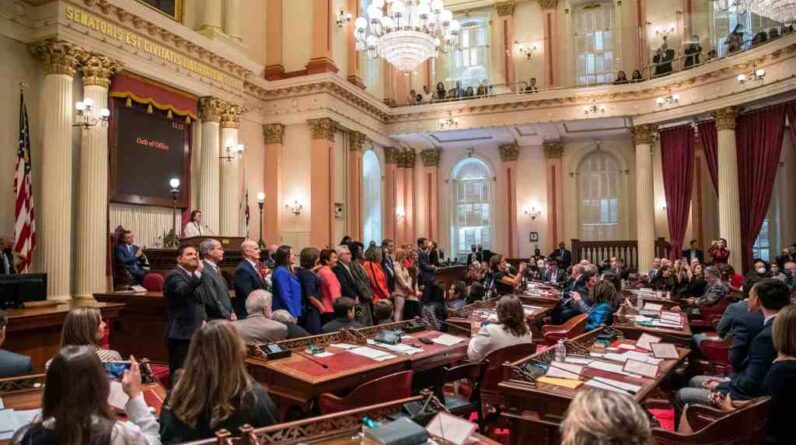
The decisions of governors, legislators and bureaucrats have consequences, some intended and some not.
If politics were a rational exercise, decision makers would fully explore the potential effects before acting, thus minimizing the chances that what they have done will backfire.
However, politics and politicians tend to act in the here and now, rather than worrying about what might happen in the future when their decrees collide with the real world.
Examples abound of short-term decisions that have turned sour. An obvious one is California’s bullet train project, which has limped along year after year and still doesn’t have enough money to even complete an initial segment, let alone a full financial plan.
If we had known then what we know now, would voters, governors and legislators have willingly started a project that appears to exist just to exist, but has no discernible purpose?
Several other notions currently plaguing the Capitol could use some critical thinking about possible consequences.
One is that California should pay reparations to its black residents for many decades of discrimination and repression. A task force set up to study the problem has pegged potential damages at up to $1.2 million per person, although it has yet to say how much should actually be paid.
“Rather, it is an economically conservative initial assessment of what losses, at a minimum, the State of California caused or could have prevented, but did not,” a task force report states. “The Legislature should decide how to translate loss estimates into proposed reparation amounts.”
No one should question that black Californians have been wronged in many ways, but even if they were awarded cash, would the claims for reparations stop there?
Latinos suffered many of the same indignities and economic harms and could easily make similar claims.
What about the Native Americans in California? They were enslaved and hunted during the early decades of the state, with rewards to encourage more slaughter. Could not today’s descendants claim reparations for the genocide?
Another issue being raised in the Capitol these days is a constitutional amendment to make housing a civil right.
Advocates say Assembly Amendment 10 is needed to spur more efforts by officials to end California’s housing shortage. If enacted, ACA 10 would give advocates for the poor and others without adequate housing a legal basis to sue state and local governments.
However, governments cannot, by themselves, end the housing shortage. At best, they can finance a few housing units, but must rely on private investment to build the millions of additional units the state needs. Making housing a constitutional right would be virtue signaling that raises expectations without any real benefit.
A third example of something that needs more objective analysis is a bill that seeks to raise the salaries of teachers and other education workers by 50% over seven years by increasing state aid to school districts.
If enacted, it would be another bullet train: making promises to do something wonderful in the future without setting out how it will be funded. One would think that politicians would have learned by now the folly of making such open-ended commitments without details.
Finally, there are directives from the Air Resources Board to end sales of gasoline and diesel vehicles, including large trucks, in the not-too-distant future. However, no one has outlined how this can be done, as a practical matter, given the current state of technology and the lack of firm plans to increase the supply of electric power, charging stations and other services and devices that this transition would require.
An old adage, “Look before you leap” could be applied to all of these problems.
CalMatters is a public interest journalism company committed to explaining how the California State Capitol works and why it matters. For more Dan stories waltersgo to comment.
[ad_2]
Source link





